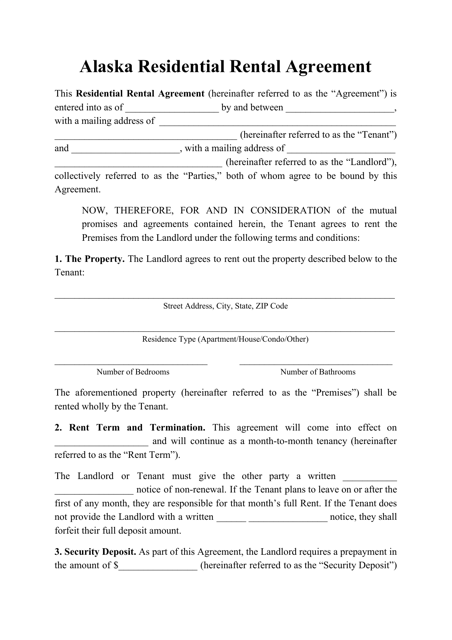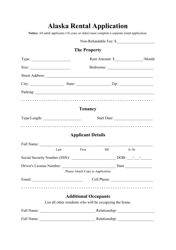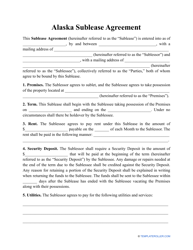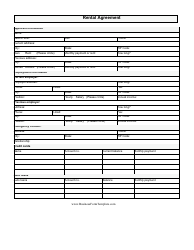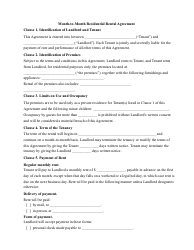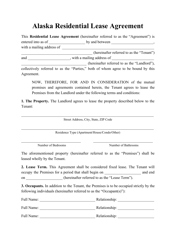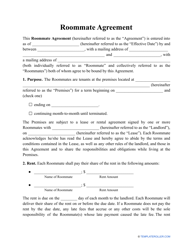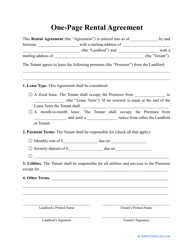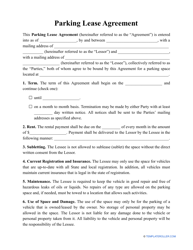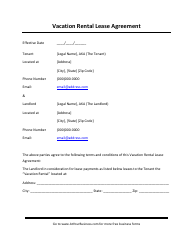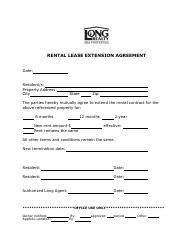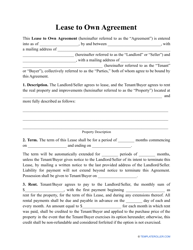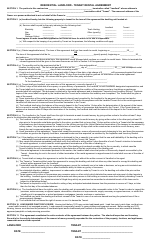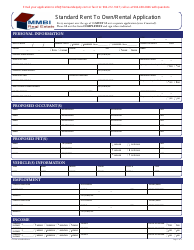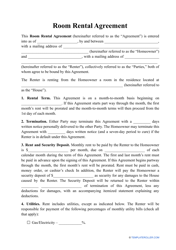Residential Rental Agreement Template - Alaska
The Residential Rental Agreement Template in Alaska is a document used for outlining the terms and conditions of renting a residential property in Alaska. It is used by landlords and tenants to establish a legally binding agreement for renting a property.
The Residential Rental Agreement Template in Alaska is typically filed by the landlord or property owner.
FAQ
Q: What is a residential rental agreement?
A: A residential rental agreement is a legal contract between a landlord and tenant, setting out the terms and conditions under which a property is rented.
Q: What is the purpose of a residential rental agreement?
A: The purpose of a residential rental agreement is to establish the rights and responsibilities of both the landlord and the tenant during the rental period.
Q: What are some common terms included in a residential rental agreement?
A: Common terms in a residential rental agreement include rent amount, lease duration, security deposit, pet policies, maintenance responsibilities, and rules for termination.
Q: Can a landlord increase the rent during the lease term?
A: A landlord can generally increase the rent at the end of the lease term, but may be subject to local rent control laws that limit the amount of the increase.
Q: What happens if either party breaches the rental agreement?
A: If either the landlord or the tenant breaches the rental agreement, the non-breaching party may be entitled to remedies such as eviction, monetary damages, or specific performance.
Q: Is a written rental agreement required in Alaska?
A: While a written rental agreement is not required in Alaska, it is strongly recommended to have one in order to clarify the rights and obligations of both parties.
Q: Can a landlord evict a tenant without cause?
A: In Alaska, a landlord can only evict a tenant for specific reasons, such as non-payment of rent, violation of lease terms, or engaging in illegal activities on the premises.
Q: What is the maximum security deposit allowed in Alaska?
A: In Alaska, the maximum security deposit that a landlord can charge is two months' rent for an unfurnished unit, or three months' rent for a furnished unit.
Q: Can a landlord deduct expenses from the security deposit?
A: A landlord may deduct expenses from the security deposit for unpaid rent, damage beyond normal wear and tear, or cleaning costs that exceed what is considered reasonable.
Q: Can a tenant make repairs and deduct the cost from the rent?
A: Alaska law allows tenants to make certain repairs and deduct the cost from the rent, but only in specific circumstances and with written notice to the landlord.
